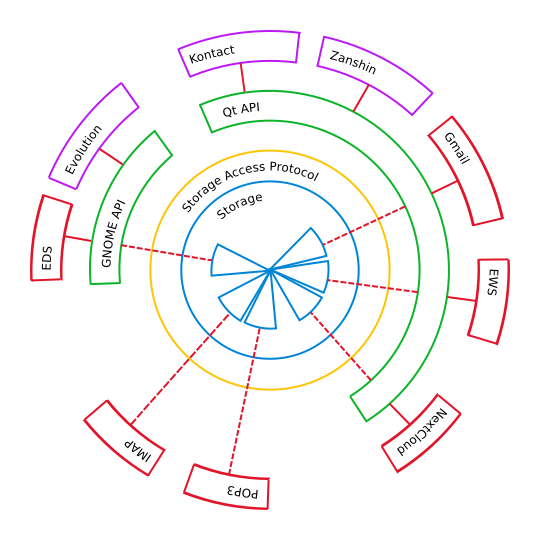diff --git a/CMakeLists.txt b/CMakeLists.txt
--- a/CMakeLists.txt
+++ b/CMakeLists.txt
@@ -88,7 +88,7 @@
find_package(Boost ${Boost_MINIMUM_VERSION})
set_package_properties(Boost PROPERTIES
DESCRIPTION "Boost C++ Libraries"
- URL "http://www.boost.org"
+ URL "https://www.boost.org"
TYPE REQUIRED
)
@@ -162,7 +162,7 @@
set(SQLITE_MIN_VERSION 3.6.23)
find_package(Sqlite ${SQLITE_MIN_VERSION})
set_package_properties(Sqlite PROPERTIES
- URL "http://www.sqlite.org"
+ URL "https://www.sqlite.org"
DESCRIPTION "The Sqlite database library"
TYPE ${SQLITE_TYPE}
PURPOSE "Required by the Sqlite backend"
diff --git a/CodingStyle.txt b/CodingStyle.txt
--- a/CodingStyle.txt
+++ b/CodingStyle.txt
@@ -2,7 +2,7 @@
But of the qsqlite subdirectory which contains a .no_coding_style file.
The rules and all the scripts are free for download and comments at:
- http://techbase.kde.org/Policies/Kdepim_Coding_Style
+ https://community.kde.org/Policies/Kdepim_Coding_Style
Feel free to communicate any comments or/and bugs:
guy dot maurel at kde dot org
diff --git a/docs/client_libraries.md b/docs/client_libraries.md
--- a/docs/client_libraries.md
+++ b/docs/client_libraries.md
@@ -10,15 +10,14 @@
# Akonadi Objects # {#objects}
@@ -495,7 +494,7 @@
# Resources # {#resources}
The KDEPIM module includes resources for handling many types of PIM data, such as imap email, vcard files and vcard directories, ical event files etc. These cover many of the sources for your PIM data, but in the case that you need to use data from another source (for example a website providing a contacts storage service and an api), you simply have to write a new resource.
-http://techbase.kde.org/Development/Tutorials/Akonadi/Resources
+https://techbase.kde.org/Development/Tutorials/Akonadi/Resources
# Serializers # {#serializers}
Serializers provide the functionality of converting raw data, for example from a file, to a strongly typed object of PIM data. For example, the addressee serializer reads data from a file and creates a KABC::Addressee object.
diff --git a/docs/internals.md b/docs/internals.md
--- a/docs/internals.md
+++ b/docs/internals.md
@@ -2,7 +2,7 @@
## Lazy Model Population ##
-NOTE: This page is not part of the Akonadi API. It is provided as internal documentation for Akonadi maintainers. It was originally a blog post here: http://steveire.wordpress.com/2009/10/06/cache-invalidation-in-akonadi-models/
+NOTE: This page is not part of the Akonadi API. It is provided as internal documentation for Akonadi maintainers. It was originally a blog post here: https://steveire.wordpress.com/2009/10/06/cache-invalidation-in-akonadi-models/
@internal
If using EntityTreeModel::LazyPopulation with your model, items will be fetched into the model when the collection they are a part of is selected. This ensures that the model is as sparsely populated as possible for performance reasons. As a consequence however, it is necessary to purge unused items from the model too. This is handled automatically when using an Akonadi::SelectionProxyModel.
diff --git a/docs/server.md b/docs/server.md
--- a/docs/server.md
+++ b/docs/server.md
@@ -7,11 +7,11 @@
This API reference is more useful to people implementing client libraries or
working on the Akonadi server itself.
-For additional information, see the Akonadi website.
+For additional information, see the Akonadi website.
## Architecture ##
- +
+ The Akonadi framework uses a client/server architecture. The Akonadi server has the following primary tasks:
* Abstract access to data from arbitrary sources, using toolkit-agnostic protocols and data formats
diff --git a/src/widgets/selftestdialog.ui b/src/widgets/selftestdialog.ui
--- a/src/widgets/selftestdialog.ui
+++ b/src/widgets/selftestdialog.ui
@@ -58,7 +58,7 @@
The Akonadi framework uses a client/server architecture. The Akonadi server has the following primary tasks:
* Abstract access to data from arbitrary sources, using toolkit-agnostic protocols and data formats
diff --git a/src/widgets/selftestdialog.ui b/src/widgets/selftestdialog.ui
--- a/src/widgets/selftestdialog.ui
+++ b/src/widgets/selftestdialog.ui
@@ -58,7 +58,7 @@
-
- <p>For more troubleshooting tips please refer to <a href="http://userbase.kde.org/Akonadi">userbase.kde.org/Akonadi</a>.</p>
+ <p>For more troubleshooting tips please refer to <a href="https://userbase.kde.org/Akonadi">userbase.kde.org/Akonadi</a>.</p>
true
 +
+ The Akonadi framework uses a client/server architecture. The Akonadi server has the following primary tasks:
* Abstract access to data from arbitrary sources, using toolkit-agnostic protocols and data formats
diff --git a/src/widgets/selftestdialog.ui b/src/widgets/selftestdialog.ui
--- a/src/widgets/selftestdialog.ui
+++ b/src/widgets/selftestdialog.ui
@@ -58,7 +58,7 @@
The Akonadi framework uses a client/server architecture. The Akonadi server has the following primary tasks:
* Abstract access to data from arbitrary sources, using toolkit-agnostic protocols and data formats
diff --git a/src/widgets/selftestdialog.ui b/src/widgets/selftestdialog.ui
--- a/src/widgets/selftestdialog.ui
+++ b/src/widgets/selftestdialog.ui
@@ -58,7 +58,7 @@